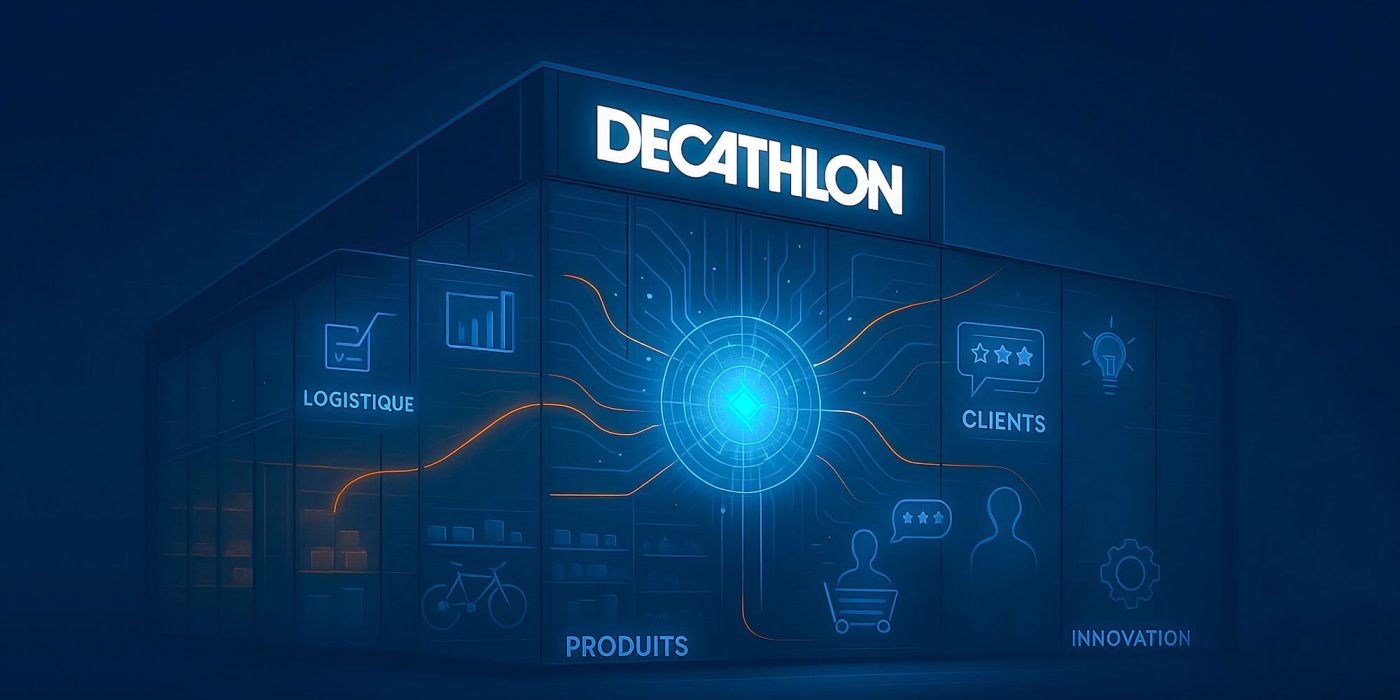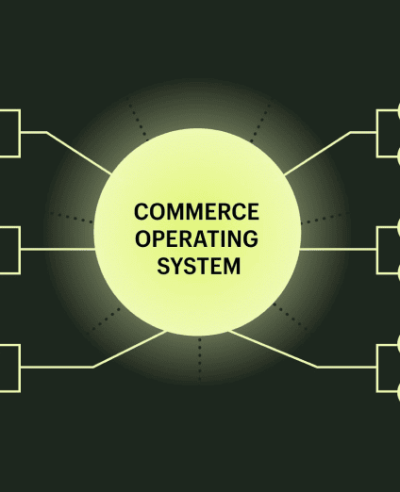- SolutionsGo BackShopify PlusStay ahead of the curve with top-tier e-commerce techCommerce OperationsGrow your e-commerce business and marketplaceAI for CommerceReinvent commerce in the AI ageIn-house SpecialistsTop e-commerce specialists in a dedicated team setupDigital ServicesCustom services for brands
- Work
- Insights
- Join us
- SolutionsGo BackShopify PlusStay ahead of the curve with top-tier e-commerce techCommerce OperationsGrow your e-commerce business and marketplaceAI for CommerceReinvent commerce in the AI ageIn-house SpecialistsTop e-commerce specialists in a dedicated team setupDigital ServicesCustom services for brands
- Work
- Insights
- Join us
- fr
- en
Decathlon and the AI Factory: turning data into performance

Decathlon, the Quiet Pioneer of AI in Retail
Far from flashy announcements, Decathlon has spent years building a solid data infrastructure, a product-driven and empowering internal culture, and a customer-centric, field-ready approach to artificial intelligence.
Let’s take a closer look at the foundations of this strategy—and what your business can learn from it.
As early as the 2010s—when most retailers were still taking their first steps into e-commerce—Decathlon was laying the foundations of a truly data-first organization. Three structural decisions explain its current lead:
- Early investment in internal teams: Data scientists, analysts, and engineers were embedded directly into business units—not isolated in IT departments.
- Advanced cloud infrastructure: Centralized, modern, and scalable—built to absorb high data volumes and make them available in real time.
- Distributed data governance: Using a “data mesh” model, each entity (country, product category, channel) owns and manages its data. This enables fast decision-making and agility while maintaining a global overview.
The result: an organization capable of acting locally while thinking globally—a rare feat in the retail sector, where technical and geographical silos often block execution.
But structuring data is only the first step. To create real impact, it must be activated in service of the customer, the field, and business performance.
This is precisely the mission of Decathlon’s AI Factory: a dedicated unit created to transform data into tangible, scalable digital products.
Décathlon et l’IA Factory : quand la donnée devient un moteur de performance
Dans un monde où les données sont devenues le nouveau pétrole, certaines entreprises montrent la voie. Décathlon, leader mondial de l’équipement sportif, fait partie de celles qui savent transformer l’abondance d’informations issues de leurs clients, de leurs produits et de leurs magasins en leviers concrets de performance.
Sans forcément l’appeler ainsi, Décathlon a bâti ce que l’on pourrait qualifier d’“IA Factory” : une structure interne qui permet de collecter, centraliser et surtout valoriser la donnée à grande échelle.
Des données au service de la performance
Ce qui frappe chez Décathlon, ce n’est pas seulement l’étendue de son offre ou son maillage mondial. C’est la capacité qu’a l’entreprise à mettre la technologie au service d’une expérience client améliorée et d’une organisation interne plus efficace.
L’IA Factory, ou ce qu’on peut assimiler à ce concept n’est pas une simple “boîte à algorithmes”. C’est un modèle qui permet de connecter chaque maillon de l’entreprise autour de la donnée.
- Côté collaborateurs, les équipes sont mieux équipées pour comprendre les comportements des clients, anticiper les besoins, gagner du temps sur des tâches répétitives et se concentrer sur la relation humaine.
- Côté clients, l’expérience est plus fluide : produits mieux recommandés, disponibilité optimisée, accompagnement renforcé. On se sent compris, guidé et non pas perdu dans un catalogue infini.
- Côté business, tout cela se traduit par une efficacité opérationnelle accrue et une satisfaction client durable, qui nourrit la croissance.
En clair, la donnée devient un cercle vertueux : ce qui enrichit l’expérience client alimente la performance interne, qui elle-même rehausse encore l’expérience.
Décathlon exploite ses données pour :
- Optimiser la logistique et la disponibilité produit : en anticipant les stocks manquants, les ruptures sont limitées et la satisfaction augmente.
- Personnaliser la relation client : recommandations adaptées, emails plus pertinents, offres pensées selon les usages réels.
- Améliorer le service en magasin et en ligne : de la disponibilité d’un conseiller au choix du bon produit, l’expérience est accompagnée.
- Accélérer l’innovation produit : en analysant les retours, les usages et les tendances pour concevoir de nouveaux équipements adaptés.
- Renforcer la durabilité : en utilisant les données pour mieux gérer les retours, prolonger la vie des produits ou améliorer les flux de seconde main.
Ces exemples ne sont pas exhaustifs, mais ils montrent une chose essentielle : avec une bonne organisation des données, la performance dépasse la simple rentabilité. Elle devient humaine, durable et collective.

Quels enseignements pour votre marque ?
Beaucoup d’entreprises rêvent d’atteindre ce niveau de maturité. Mais entre le rêve et la réalité, le chemin peut sembler long. La bonne nouvelle, c’est qu’il n’est pas nécessaire d’avoir la taille d’un Décathlon pour enclencher une dynamique.
Voici trois pistes activables dès aujourd’hui :
- Commencez petit mais concret : concentrez-vous sur un cas d’usage business qui a un impact direct (mieux cibler vos clients, réduire vos ruptures de stock, améliorer votre taux de conversion).
- Mettez vos équipes au centre : l’IA et la donnée ne sont pas là pour remplacer, mais pour augmenter.
- Donnez-leur des outils simples, qui les aident réellement dans leur quotidien.
- Construisez une vision progressive : une “IA Factory” n’arrive pas en un jour. Elle se construit par briques, en alignant la stratégie, les process et la technologie.
Et c’est précisément là que l’accompagnement fait la différence. Chez Horrea, nous voyons chaque jour à quel point les entreprises, petites comme grandes, peuvent tirer parti de leurs données dès lors qu’elles sont guidées par une méthode claire et orientée résultats. Se lancer seul est possible. Mais avancer avec un partenaire qui a déjà structuré ce chemin, c’est gagner du temps, sécuriser ses investissements et surtout transformer plus vite.
En conclusion : performer ou disparaître
Le cas Décathlon n’est pas seulement une vitrine technologique. C’est une démonstration business : maîtriser ses données, c’est assurer sa croissance. Ne pas le faire, c’est laisser la place aux autres.
L’IA Factory est moins une question de technologie qu’une question de vision. Et dans cette course, il y a ceux qui construisent dès aujourd’hui… et ceux qui, demain, se feront dépasser.
Et vous, où en êtes-vous dans la valorisation de vos données ?











